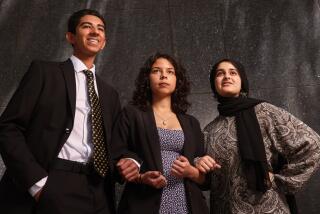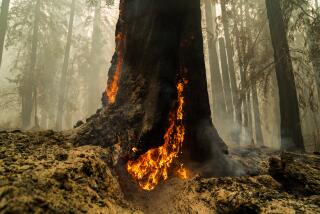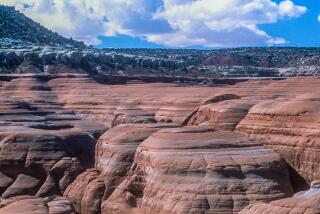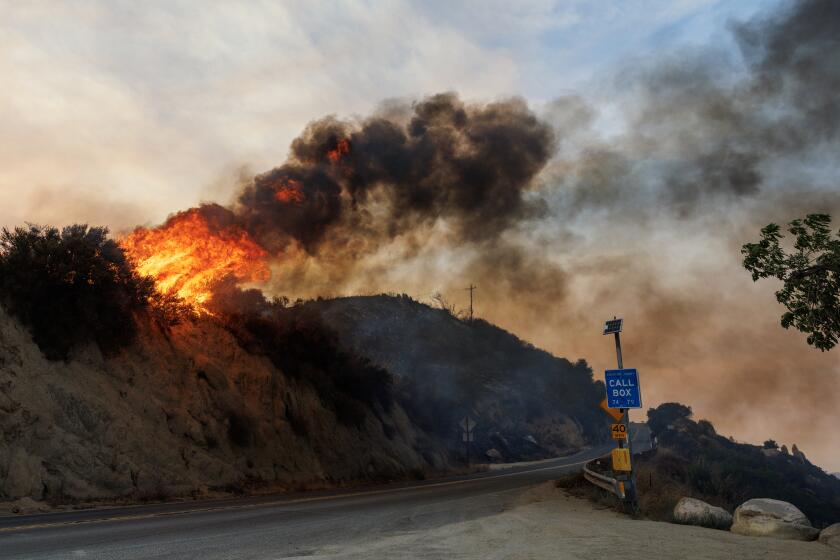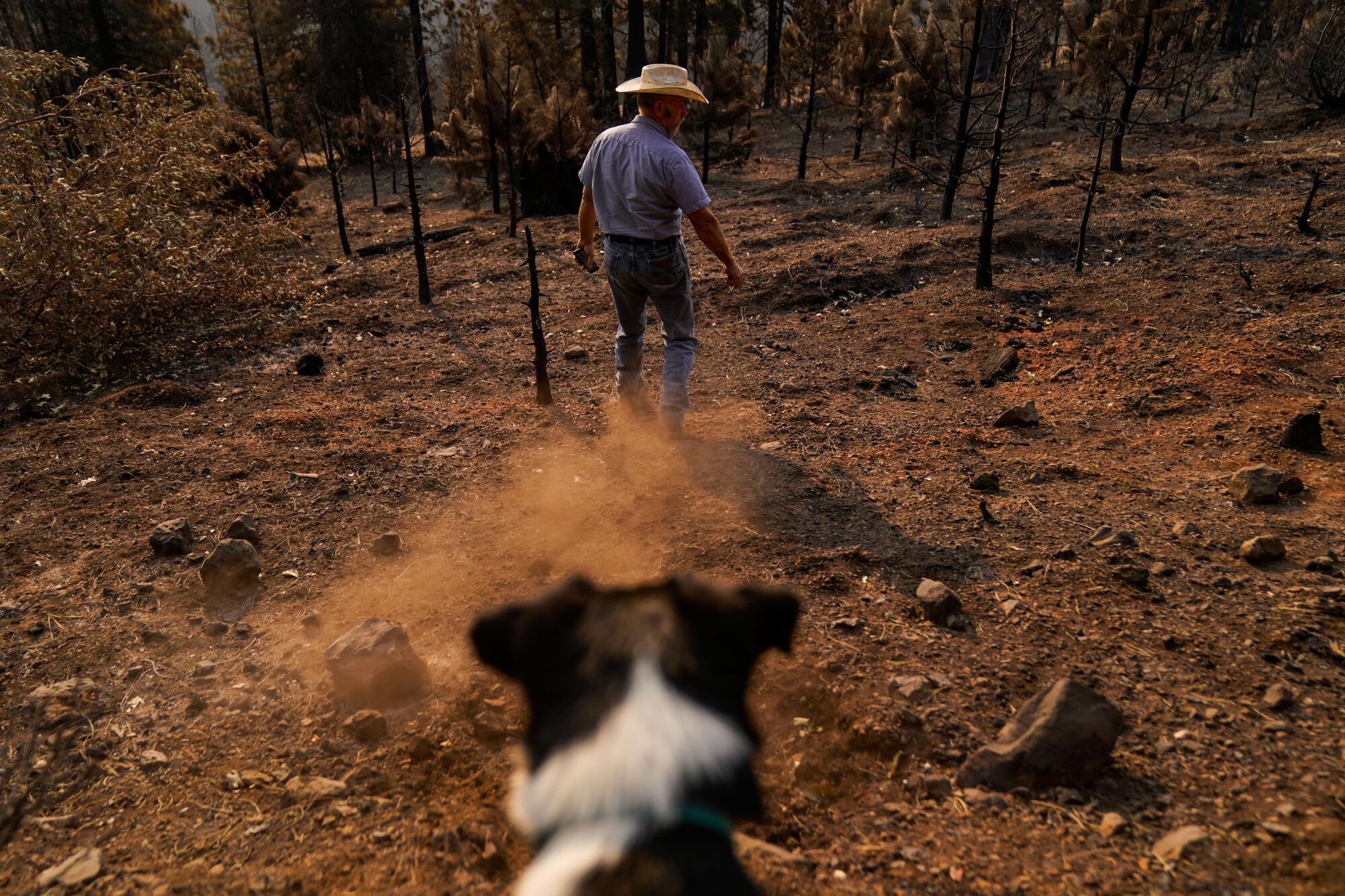
PLUMAS NATIONAL FOREST, Calif. — Dave Daley stood recently on the edge of a barren ridge and bellowed out a guttural cry meant to call his cows home — if any remained alive after the North Complex wildfire decimated this national forest.
It was a long, mellifluous chant that sounded like “Come Boss,” taught to him by his own father and, he thinks, maybe originating with the genus of the species he hoped to find, Bos taurus, domesticated cattle.
When the sound finished bouncing off the far hills, miles across a plunging valley where the Feather River meandered into Lake Oroville, he waited in a silence so deep it can be made only by absence — of animals in underbrush, of leaves for wind to rustle, of life — hoping to hear the clanking of the bells each of his animals wears. But the silence held.
“You can replace a house,” he said, his voice hoarse and sorrow crinkling the sun-baked lines around his eyes, their color a pale green-brown that mirrored the scorched pine needles nearby. “You can’t replace this.”
Three weeks ago, a windy night turned the Bear fire into another California catastrophe, pulling embers off the ground and into the air, across the river, through treetops and down these mountains to the towns of Feather Falls and Berry Creek, where at least 15 people died. Here, in dense woods, Daley’s 400 head of cows, many with calves in tow, ranged free in summer, as they had done for the six generations his family has ranched on this land.
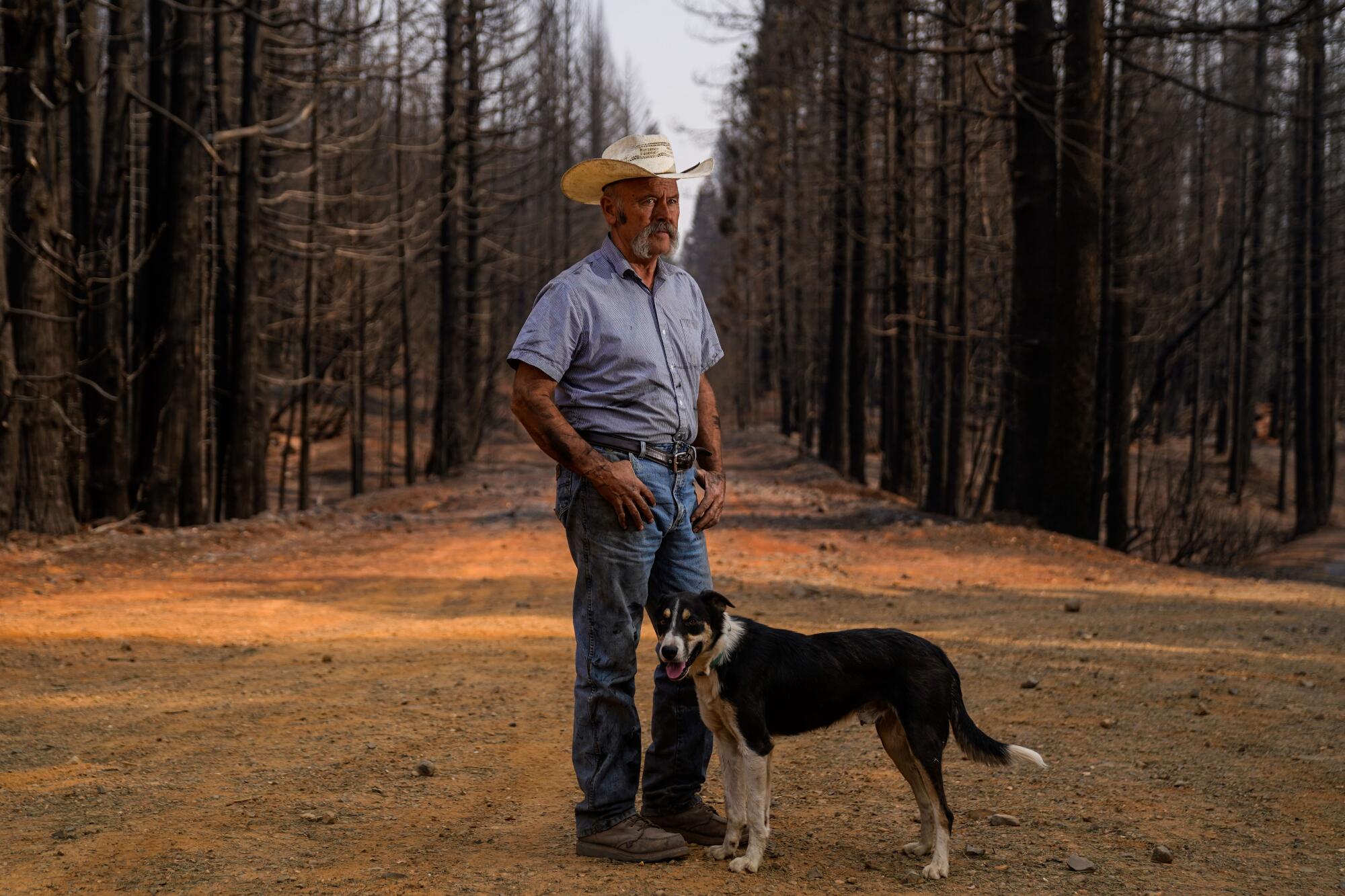
In about 1882, Daley’s family started running cows up into this high country, back before there was a National Forest system, and their brand has grandfathered access — though some environmentalists believe cattle have no place on public lands.
Now, only a bitter smell and ravens circling overhead could signal where many of their burned carcasses lay, blending into a dismal palette of ash and charcoaled timber. Though Daley and his family search every day for survivors, only about 130 have turned up alive — some so badly injured, with udders, hooves and even legs seared off, that they have to be put down. An additional 100 have been found dead.
Consumed by guilt that he couldn’t save them, and fear that some may still be suffering, he’s scouring what’s left of trails and tracks with names such as Lava Top and Bear Wallow that he probably knows better than any person alive, having roamed them since he was a boy. Friday was Day 22.
“The live ones are live and the dead ones are dead,” he said with cowboy pragmatism. “But the injured ones are missing.”
Daley’s fury and frustration is growing as the full brunt of the loss sets in.
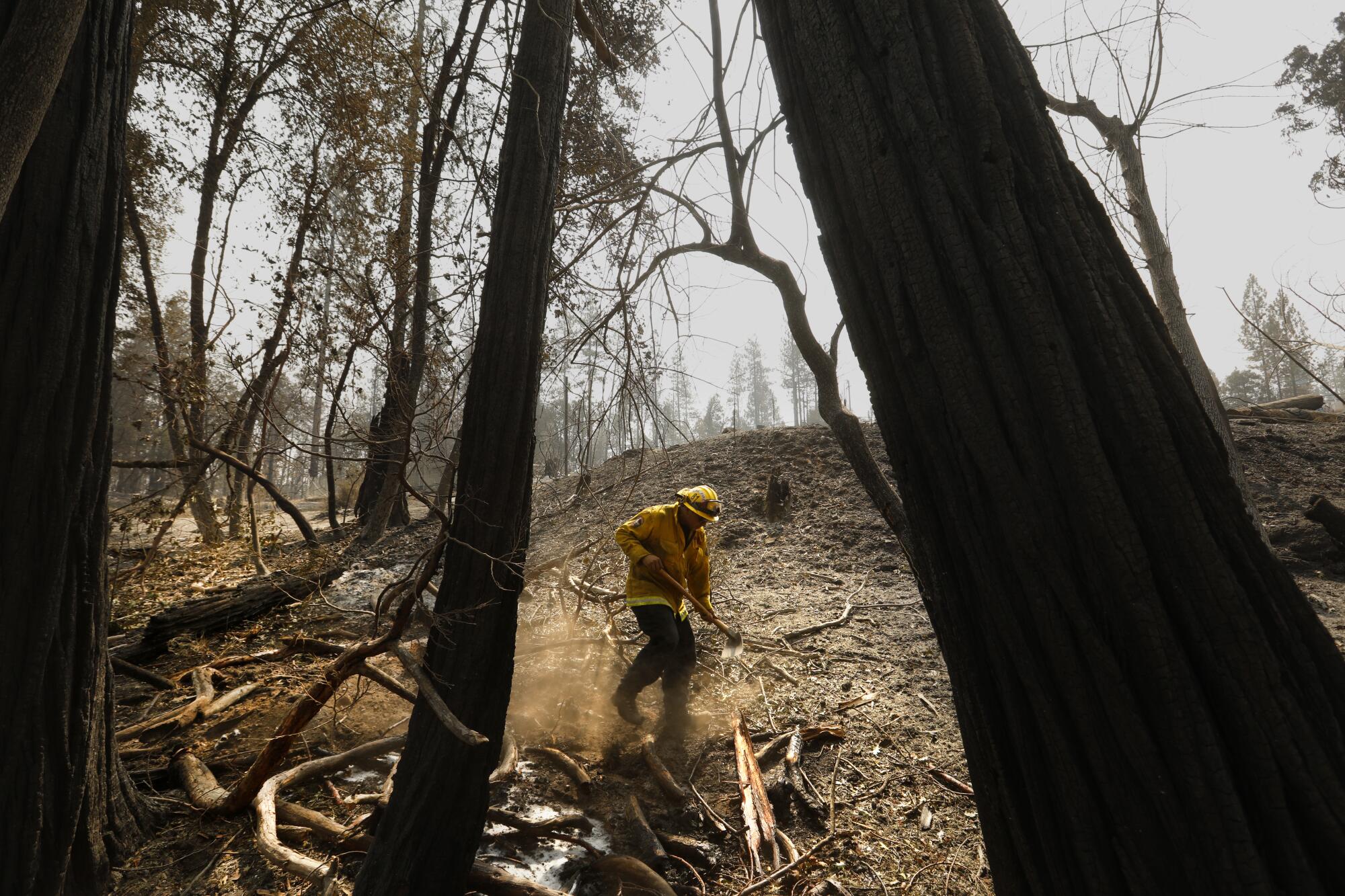
This fire, he believes, and the dozens of others eating across the state could have been prevented — if it weren’t for the divisive politics that for decades have pitted agriculture against environmentalism, climate change against forest management, “enviros” against ranchers.
If nothing else comes of telling his story, he wants this: Compromise — a return to centrist politics lost in the current uproar.
“I am again angry at everyone and no one,” Daley wrote a few days after the fire, in a message his daughter Kate put on Facebook and which quickly went viral. “I am absolutely tired of politicians and politics, from both the left and the right. Shut up. You use tragedies to fuel agendas and raise money to feed egos. I am sick of it. And it plays out on social media and cable news with (distortion) and half-truths. ON BOTH SIDES. Washington, DC is 3000 miles away and is filled with lobbyists, consultants and regulators who wouldn’t know a sugar pine from a fir. Sacramento is 100 miles south and feels even more distant than DC.”
Though the majority of Californians agree that wildfires have worsened in recent years, they remain in political camps when it comes to why. Nine in 10 Democrats believe climate change is a major factor, according to a recent poll by the UC Berkeley Institute of Governmental Studies. Only 19% of Republicans believe the same, and 46% don’t think it plays any part.
In Daley’s world of ranchers, climate change is largely viewed as nonsense, he said, though he’s had enough of that position. When an email screed against climate science popped up on his phone, he refused to read it. But he also is exasperated by ranchers being demonized, as he sees it, and forests subject to litigation and inaction until they are dangerously overgrown.
“Just maybe it’s both — horrible forest management and climate change,” he said, driving his Ford F350 on closed roads where hot spots still sent smoke curling upward and logs occasionally had to be chain-sawed away. A dirty straw cowboy hat was pulled low on his forehead. “The fringe is leading the discussion, and we are unwilling to take it back from either side.”
A Republican who is contemplating switching to no party preference — he hopes he will be less marginalized in a state dominated by Democrats — Daley sees himself and others who make a living off livestock as part of the solution for managing wildlands, people with real-world experience. A professor emeritus of animal science at Cal State Chico, he has a doctorate to back it up but still feels under attack in a dark blue state.
He doesn’t like everything President Trump says, but he appreciates his bent toward farmers, he said. He isn’t fond of everything Gov. Gavin Newsom does, either, but he’s raised money for him in the past.
Both, he said, can be “idiots.”
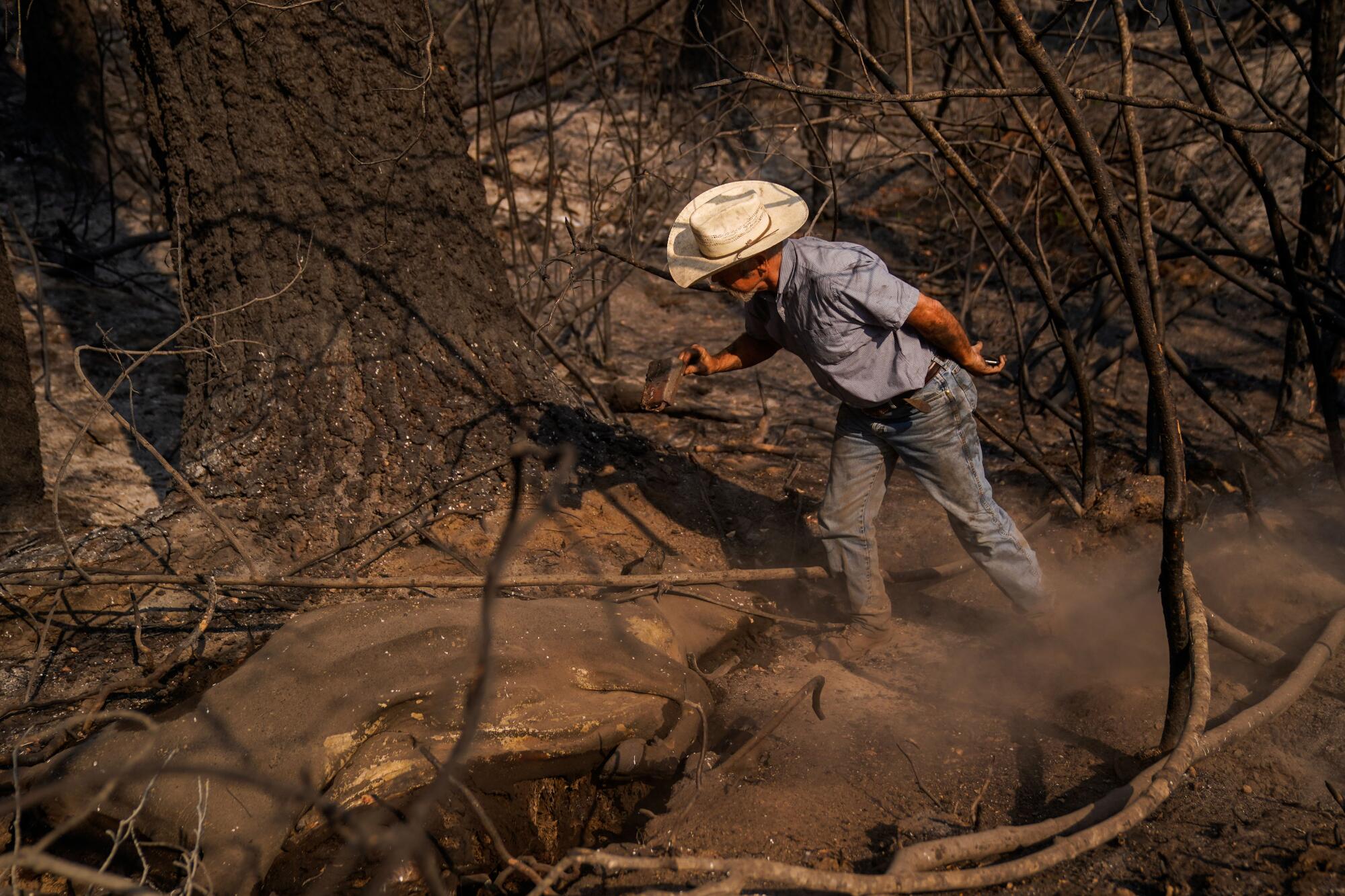
He’s made himself a political player, serving in leadership posts in the California Cattlemen’s Assn., the California Cattle Council and the National Cattlemen’s Beef Assn. Such positions take him, with his bushy horseshoe mustache and gruff courtesies, to the halls of the state Legislature, as well as Congress.
“I can disagree with both sides, but if I’m not in the room, who cares?” he said. “I’ve had to work really hard to learn to be not ... inflammatory and not angry, and it’s a constant effort.”
After all these decades of bringing Daley cows to this forest, he is heavy-hearted that his 3-month-old granddaughter Juniper — Juni for short — will never see it as he did. He fears that her father, his son Kyle, is inheriting a family tragedy instead of a tradition. He is grieving that his daughter Kate, a veterinarian, had to euthanize an injured cow, only to see its calf kicking inside her, unable to cut it out in time to save it.
“This is a legacy and a history and really very personal,” he said.
Once, about 6,500 cattle roamed this area, before it was federal land, along with 5,000 sheep, all herded on horseback. “Was it overgrazed?” Probably, Daley said. “Were there mega-fires? No.”
Those family ranches, with a few hundred cows each, are gone now, except for his.
“We ended up with the whole range,” he said. His family holds a permit for 400 pairs of cows and calves that roam over 90,000 acres of the Plumas National Forest and private lands owned by a timber company.
Daley says he is not giving up. But it won’t be the same. The cows won’t know the range, won’t know to come when he calls and, for decades to come, won’t wander nearly impenetrable thickets and meadows canopied by conifers.
Spring will bring grasses to graze — already ferns and shoots are pushing up, but winter rains may bring mudslides and Daley is uncertain if the fire will change his government permit. The herd wasn’t insured, and though there is a federal program that could pay for part of it, he doesn’t want handouts. But money is always an issue.
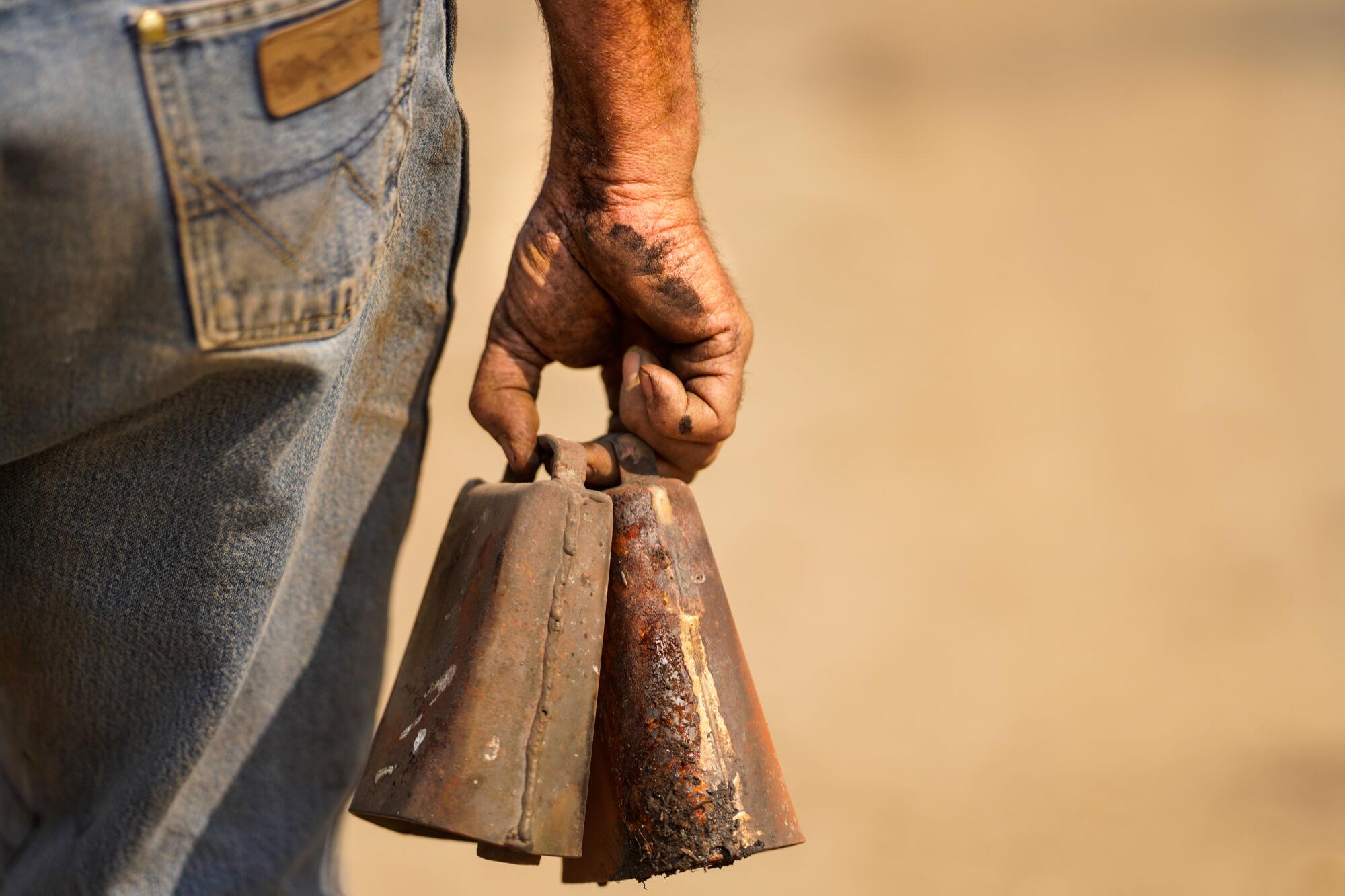
Friday, Daley found more dead cows, a half dozen that had sought false safety near a creek. He collected their trapezoidal bells, as he has done each time he finds a carcass. Some of the bells go back generations, the biggest ones reserved for special “ladies,” as Daley calls them, the old-hand cows who knew their way around this range after years of wandering.
But he hasn’t found living cows in days, and the only sound in the forest was the hollow knock of metal on metal from the bells he held.
The time to end the search was nearing, the scope of the ruin settling in so that he sometimes wakes at night, mad at himself — for sticking with this unsparing endeavor, for passing it on to his kids. But in daylight, it’s clear this is the only place for the Daleys.
Here is where Dave’s grandmother taught in a one-room schoolhouse down the road. Here is where he bumped along in the back of his grandfather’s pickup on cold fall mornings, hot chocolate his reward for taking part in the roundup. Here is where his children played in spring-fed meadows, when the grass was an electric yellow-green and the calves still stood on wobbly legs.
“This is a hard country to know,” he said. “Thirty years from now, Juni will be riding down a trail and probably find a bell.”
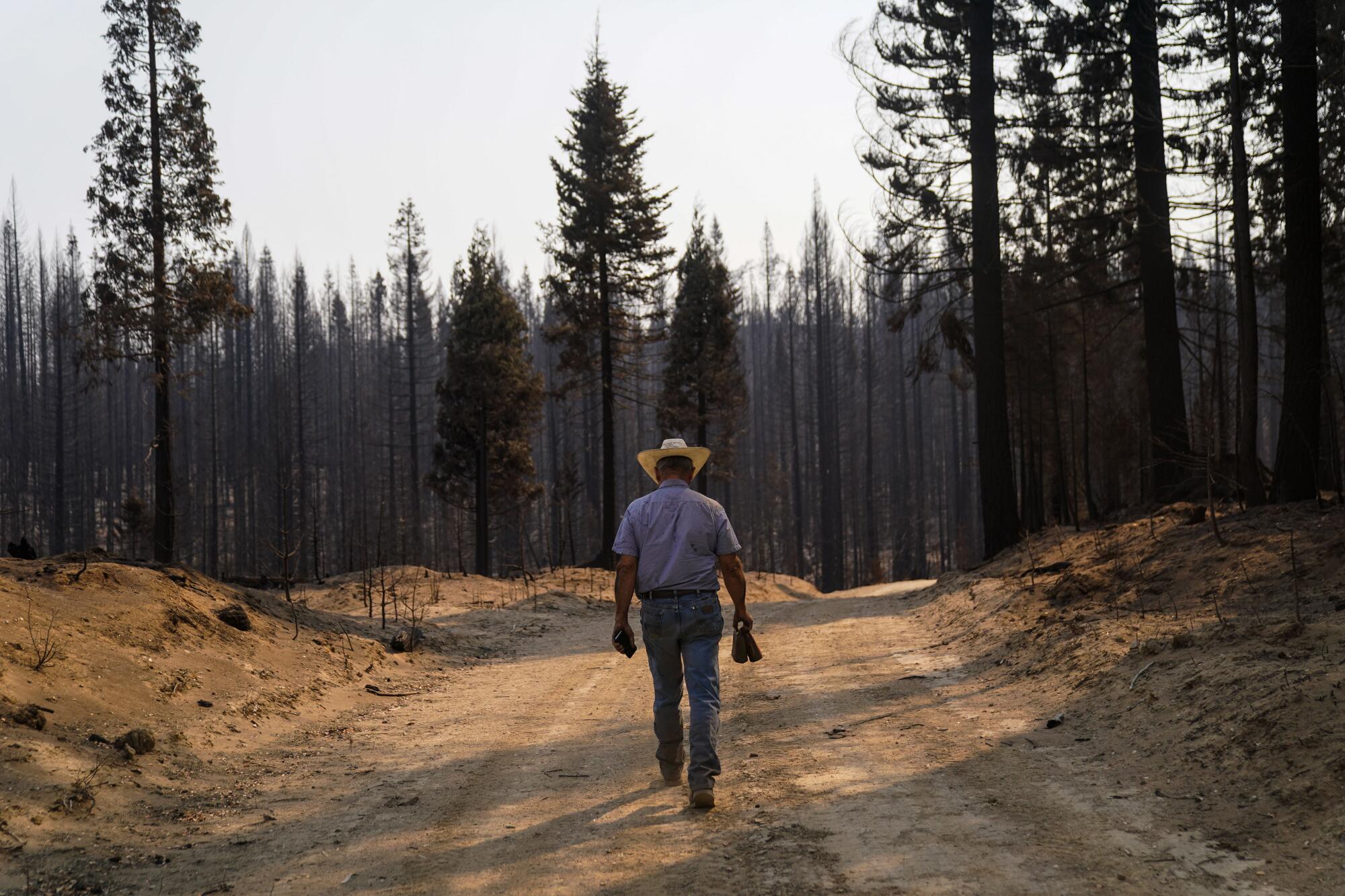
More to Read
Sign up for Essential California
The most important California stories and recommendations in your inbox every morning.
You may occasionally receive promotional content from the Los Angeles Times.
